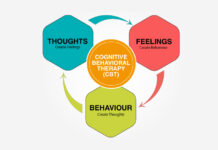
According to a study “Influence of perceived stress on incident amnestic mild cognitive impairment: Results from the Einstein Aging Study” from Albert Einstein College of Medicine and Montefiore Health System, highly stressed elderly people are more than twice as likely to develop mild cognitive impairment–often a prelude to Alzheimer’s disease–than those who are not stressed. This study looked at the connection between chronic stress and “amnestic mild cognitive impairment (aMCI), the most common type of MCI, which is primarily characterized by memory loss. The findings were published online in Alzheimer Disease & Associated Disorders.
“Our study provides strong evidence that perceived stress increases the likelihood that an older person will develop aMCI,” said Richard Lipton, MD, senior author of the study, vice chair of neurology at Einstein and Montefiore, and professor in the Saul R. Korey Department of Neurology and the Edwin S. Lowe Chair of Neurology at Einstein. “Fortunately, perceived stress is a modifiable risk factor for cognitive impairment, making it a potential target for treatment.”
The study’s first author Mindy Katz, M.P.H., senior associate in the Saul R. Korey Department of Neurology at Einstein says that “perceived stress can be altered by mindfulness-based stress reduction, cognitive-behavioral therapies and stress-reducing drugs. These interventions may postpone or even prevent an individual’s cognitive decline.”
The researchers studied data collected from 507 people enrolled in the Einstein Aging Study (EAS), a community-based cohort of older adults. Starting in 2005, the EAS began assessing stress using the Perceived Stress Scale (PSS). This widely used 14-item measure of psychological stress was designed to be sensitive to chronic stress (due to ongoing life circumstances, possible future events and other causes) perceived over the previous month. PSS scores range from 0 to 56, with higher scores indicating greater perceived stress.
The diagnosis of aMCI was based on standardized clinical criteria including the results of recall tests and reports of forgetfulness from the participants or from others. All 507 enrollees were free of aMCI or dementia at their initial PSS assessment and subsequently underwent at least one annual follow-up evaluation. They were followed for an average of 3.6 years.
Seventy-one of the 507 participants were diagnosed with aMCI during the study. The greater the participants’ stress level, the greater their risk for developing aMCI: for every 5 point increase in their PSS scores, their risk of developing aMCI increased by 30 percent. Similar results were obtained when participants were divided into five groups (quintiles) based on their PSS scores. Participants in the highest-stress quintile (high stress) were nearly 2.5 times more likely to develop aMCI than were people in the remaining four quintiles combined (low stress).
This study suggests that detecting and treating stress in elderly people might help delay or even prevent the onset of Alzheimer’s.











